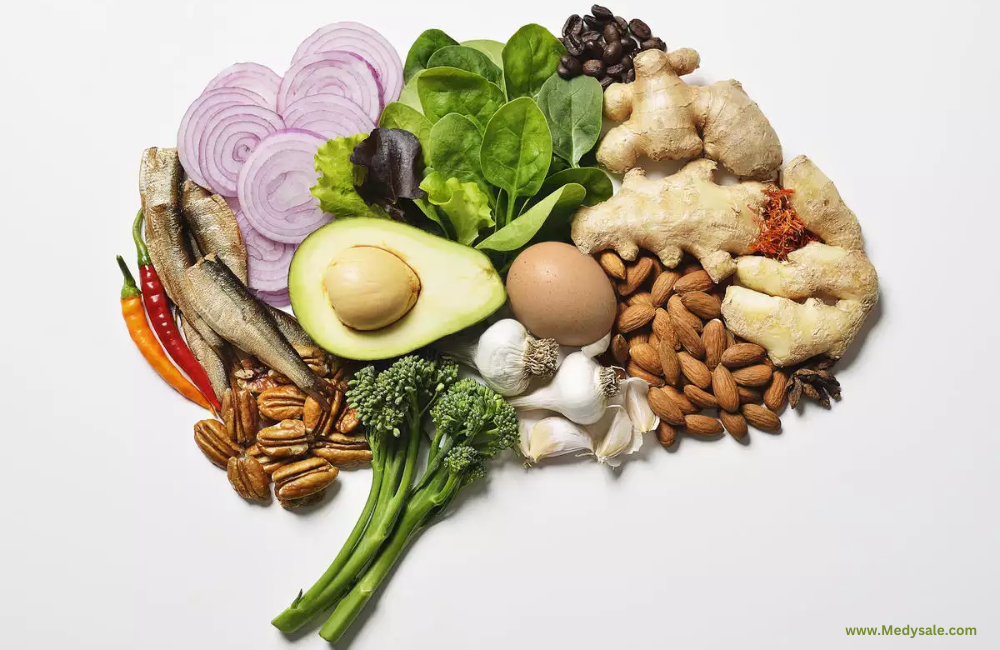How to Improve Your Brain Health
Your brain is the engine that controls the activities of your entire body. The brain, as the heart of your body and the inner nervous system is pivotal in many important body roles. It controls your breathing, pulse, motor capacity, action, and ability to speak and understand. Use foods for health.
The brain houses 100 billion neurons and 40,000 synapses. These synapses are constantly sending information and exciting neural signals. They also send necessary functions to keep your brain hum and lively. These signals are the result of the coordination between different thoughts, sensations and actions. The brain uses as much as 20% of our body’s daily energy because it is constantly at work, whether creating forms throughout the day or cleaning up after us at night.
The Brain Foods You Need to Eat Every Day To Stay Healthy
For the brain to function properly, it needs both food and fuel. Your brain will be active if you give it the right nutrients. You can focus on specific tasks, express creativity and even improve your memory.
The Brain diet recommends that you eat at least six servings of leafy greens per day. You can think of vegetables like spinach, collards greens, kale and lettuce.
These vegetables contain good-for you nutrients such as vitamin K, folate, and phytonutrients. These are natural aggregates that plants provide to support healthy cell growth and reduce infection. Vidalista 20 for sale and Cenforce 100 mg tablet are two options for treating ED.
Your brain will benefit from a variety of nutritious foods.
The best food combinations to boost your brain power are whole fruits, greens, legumes and healthy fats. This includes nuts, fish, seeds and nuts. These foods are rich in vitamins and minerals that increase active memory, cognitive ability and attentiveness as well as creativity.
For a healthy brain, you need to consume omega-3 fatty acid, B vitamins and E vitamins. They can also alter the rebellious effects of sugar, processed foods, and high levels of fats in the body. Provocative foods can cause oxidative anxiety. They destroy neurons and reduce your memory. It also affects your ability to correctly treat concepts and thoughts.
Is supplementation as effective as eating a healthy diet?
Supplements are quick and easy to provide the nutrients your body needs. The benefits of the natural aggregate of nutrients found in food and their bioavailability to the body for digestion may be more important. Some bioactive compounds and dietary fiber are found in foods that can be added to supplements. Many sequels might claim to have an everyday value for a particular vitamin or mineral. However, they can be difficult to grasp if taken incorrectly, especially if it is not with food.
The Brain diet includes many wholes and anti-inflammatory foods.
1) Leafy greens
Regular green consumption can help prevent cognitive decline and keep your mind sharp. Research has shown that those who eat 1-2 portions of greens per day have the same cognitive abilities as people 11 years older.
Essential nutrients such as folate and vitamins E and K, vitamin lutein and beta-carotene are found in mustard greens, spinach, kale and collards. Vitamin E has been shown to improve cognitive ability, decrease inflammation in the brain, and block the formation of plaque on brain cells. This has been linked with Alzheimer’s disease.
Folate reduces homocysteine rise, an amino acid that is linked to cognitive impairment and Alzheimer’s disease in older adults. Foliage also contains lutein, an ingredient that has been used to treat infection.
2) Berries
Berries are rich in antioxidants and protect brain cells against toxic free rebels that can cause oxidative injury. Blackberries, blueberries and strawberries are rich in antioxidants that can help stop age-related memory impairment. They also promote brain function by decreasing inflammation and neuronal damage.
Carotenoids and flavonoids are antioxidants that give fruit their deep purple and red skins. Anthocyanin, another flavonoid found in berries has been linked to increased memory capacity and neurogenesis. This is how new neurons in the brain are made.
These nutritious fruits are rich in nutrients and can help fight any degenerative changes in your mind. They also provide a great source for fiber and glucose, which are two of the primary energy specialists.
3) Olive oil
The Brain diet does not allow for olive oil to be used in a specific amount. Instead, use it as a substitute for butter and other oils.
Olive oil is rich in healthy monounsaturated fat. Low-carbohydrate foods high in healthy fats can increase ketosis which is beneficial for brain function.
4) Fish
Omega-3 fatty acids are found in fish, which is an important source of the nutrient. This nutrient improves brain strength and construction. The brain uses omega-3s for brain and tissue cell formation, to regulate heartbeat and prevent blood clots. The brain contains a high level of DHA, an omega-3 fatty acids that provides neuroprotection and cognitive production for all ages.
Omega-3 fatty acids can help you lower your “bad” cholesterol (LDL), and increase good cholesterol (HDL), which protects your brain. It can also help build layers of cells in the brain that could have anti-inflammatory or antioxidant effects to protect brain cells.
5) Nuts
The following Brain diet food section is ideal for those who are always on the move. It’s compact and requires no prep. What’s not to like about that dual win?
According to the guidelines, you should eat at least five portions of nuts each week. Nuts are a fantastic source of vitamin E. This is a powerful nutrient that can help to prevent cognitive decline and a great resource for healthy plant-based fats.
